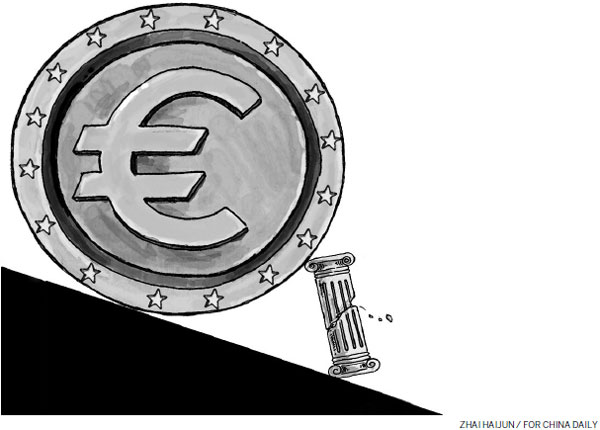
Most countries remain in recession - some in outright depression - with record high levels of unemployment. Encouraging signs like the slight improvement of employment in Spain remain singular incidents.
Worse, public and private debt levels continue to grow faster than the economies. In all countries, debt levels are significantly higher than in 2007. In contrast to the United States, Europe has not even started to deleverage. This is largely a function of smarter bankruptcy laws in the US, where an unsustainable debt burden can be readily written off by the institution holding that debt.
Perverse as it may sound, the Greek theater may pave the way for a continuation of the current failed policy of fighting a crisis that was caused by too much and too cheap money with even more and even cheaper money.
The ECB, caught in the middle as a central bank often is, can only buy time for the politicians to deal with the fundamental challenges of the eurozone. What has to happen is a eurozone-wide debt restructuring - mind you, not only for Greece!
Unfortunately, politicians make no use of the time bought by the ECB. Since ECP President Mario Draghi's famous promise to do "whatever it takes", politicians have outsourced crisis management to the central bank. To be sure, the current low interest rates represent a nice source of profit for speculators (who bought the bonds previously at low prices and can now sell them to the ECB), but they are no remedy for the real economy.
The real problems of Europe are threefold - the lack of competitiveness, structural rigidities and over-indebtedness. For all of the ECB's actions, these deeply rooted problems are not solved, but grow bigger every day.
The author is the founder of the German think tank Beyond the Obvious.
The Globalist

I’ve lived in China for quite a considerable time including my graduate school years, travelled and worked in a few cities and still choose my destination taking into consideration the density of smog or PM2.5 particulate matter in the region.